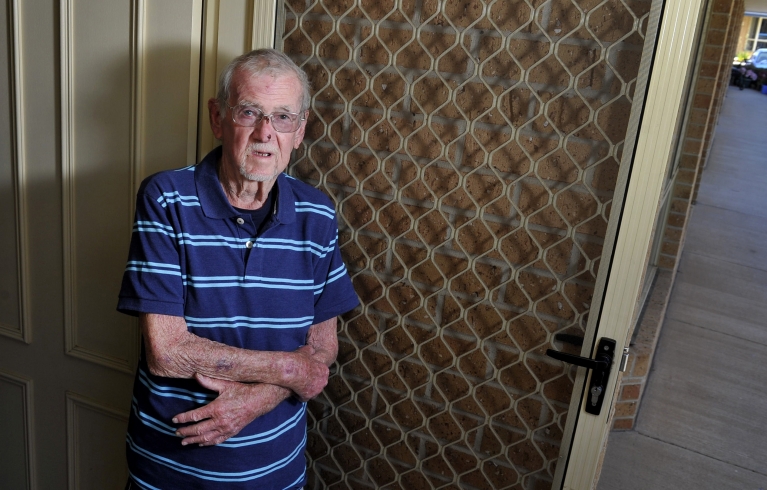MELTON residents fear a blowout in ambulance response times could put lives at risk.
Brookfield resident Doug Henderson, 80, waited for more than an hour for an ambulance after falling outside his Brooklyn Gardens retirement home.
Mr Henderson said he was walking to lunch on November 11 when he fell. Tests have failed to reveal what caused his fall.
He was found bleeding on the footpath, with facial injuries after his glasses shattered.
“It was quite frightening for me. I still don’t know what caused me to fall. I just fell, I didn’t trip,” Mr Henderson said.
As reported by the Weekly in September, documents provided by the state opposition revealed average ambulance response times in Melton increased by 13 minutes from 2009-10 to more than 23 minutes a year later.
After waiting more than an hour, Mr Henderson was driven to a Melton medical centre by Cliff Brooking, the son of a fellow resident.
“He was in a bad way when I found him,” Mr Brooking said.
“Doug had lost a fair bit of blood and I decided to take him to the local medical centre. If that is the best we can do with ambulance response times, we’re in trouble.”
Mr Henderson is recovering after receiving six stitches to his head. But he said the lengthy wait had had a lasting effect, with fellow residents concerned about future medical emergencies.
Ambulance Victoria group manager Tony Elliott said its systems identified the most serious cases so ambulances could be sent to the sickest patients first.
“We understand that it can be concerning for those waiting.”
Mr Elliott said in Mr Henderson’s case, an ambulance was sent as soon as it was available but was cancelled before it reached him.
He said there had been an increase in paramedic responses across Victoria. In 2011, AV took an average of 1780 patients to hospital each day, a 2 per cent increase from 2010.
“A measure of the quality of our service can be seen in improvements in the survival rate of our patients. Our research shows that survival rates from cardiac arrest continue to improve across the state with them more than doubling in rural Victoria since 2008.”
Mr Elliott said AV was improving emergency medical care, with a centralised system mapping demand for ambulances by time of day and location.
Melton Labor MP Don Nardella said paramedics were clearly under pressure.
“I call on the Baillieu government to properly fund the Victorian health system, especially the ambulance service, so that people are not left waiting and finally giving up [arranging their own transport], as [Mr Henderson] did.”
In September, Mr Nardella said documents obtained by the opposition under freedom of information revealed that response times for life-threatening emergencies in Melton had blown out since 2010.
A spokeswoman for Health Minister David Davis disputed the claims and said the minister would not comment until the opposition provided source documents.
The data obtained under FOI compared the 2009-10 financial year with the 2011 calendar year.







